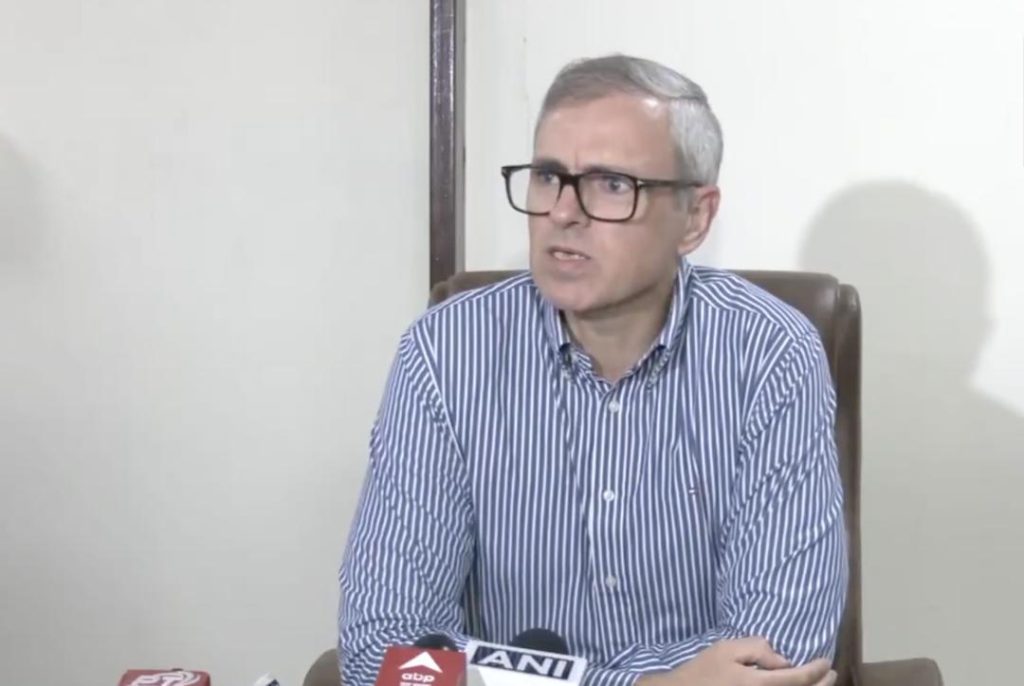
Why should I send water to Punjab?: J&K CM on canal proposal
The recent proposal to construct a 113 km-long canal to redirect surplus water from three western rivers of the Indus system in Jammu and Kashmir to Punjab, Haryana, and Rajasthan has sparked a heated debate in the region. The Jammu and Kashmir (J&K) Chief Minister, Omar Abdullah, has been vocal about his opposition to the plan, questioning the rationale behind diverting water from his state to other regions. In this blog post, we’ll delve into the reasons behind his stance and explore the implications of this proposal.
Omar Abdullah’s concerns revolve around the historical context of the Indus Waters Treaty, which was signed in 1960 between India and Pakistan. According to the treaty, the three eastern rivers of the Indus system – Sutlej, Beas, and Ravi – were allocated to India, while the three western rivers – Indus, Jhelum, and Chenab – were allocated to Pakistan. Punjab, being a part of India, received a significant amount of water under this treaty.
Abdullah’s question, “Why should I send water to Punjab?” is a valid one, considering that Punjab already has a substantial amount of water allocated to it under the Indus Waters Treaty. In fact, Punjab has been one of the most water-rich states in India, with the Ravi and Beas rivers flowing through its territory. By sending water from J&K to Punjab, it would be essentially transferring water from one region to another, without resolving the state’s own water scarcity issues.
Moreover, Abdullah has pointed out that Punjab has never shared its water with J&K in the past, despite the state’s dire need for it. “Did they give us water when we needed it?” he asked, referring to the historical lack of water sharing between the two states. This question highlights the obvious asymmetry in the relationship between J&K and Punjab, with the latter having consistently received more water and resources than the former.
The proposal to construct the canal has been met with opposition from various quarters in J&K, with many arguing that it would divert water away from the state’s own agricultural and industrial needs. The state’s agricultural sector is already struggling due to inadequate irrigation facilities and water scarcity, making it difficult for farmers to sustain their livelihoods. By sending water to other states, J&K would be sacrificing its own developmental priorities for the sake of meeting the demands of other regions.
Furthermore, the proposed canal would require significant investment and resources, which could be better utilized in J&K for its own development projects. The state has been grappling with issues such as poverty, unemployment, and infrastructure development, and diverting funds towards a canal project that benefits other states would exacerbate these problems.
The opposition to the canal proposal has also been fueled by concerns about the environmental impact of such a project. The construction of the canal would require the destruction of natural habitats and ecosystems, leading to the displacement of local communities and the loss of biodiversity. Moreover, the canal would also pose a risk to the fragile environment of the Himalayas, which is already facing threats from climate change and human activities.
In conclusion, J&K Chief Minister Omar Abdullah’s opposition to the canal proposal is rooted in the historical context of the Indus Waters Treaty and the state’s own developmental priorities. By questioning the rationale behind diverting water from J&K to Punjab, Abdullah is highlighting the need for a more equitable and sustainable approach to water management in the region. Rather than prioritizing the interests of other states, J&K deserves to be treated as an equal partner in the Indus Waters Treaty, with its own water needs and developmental priorities taken into account.






